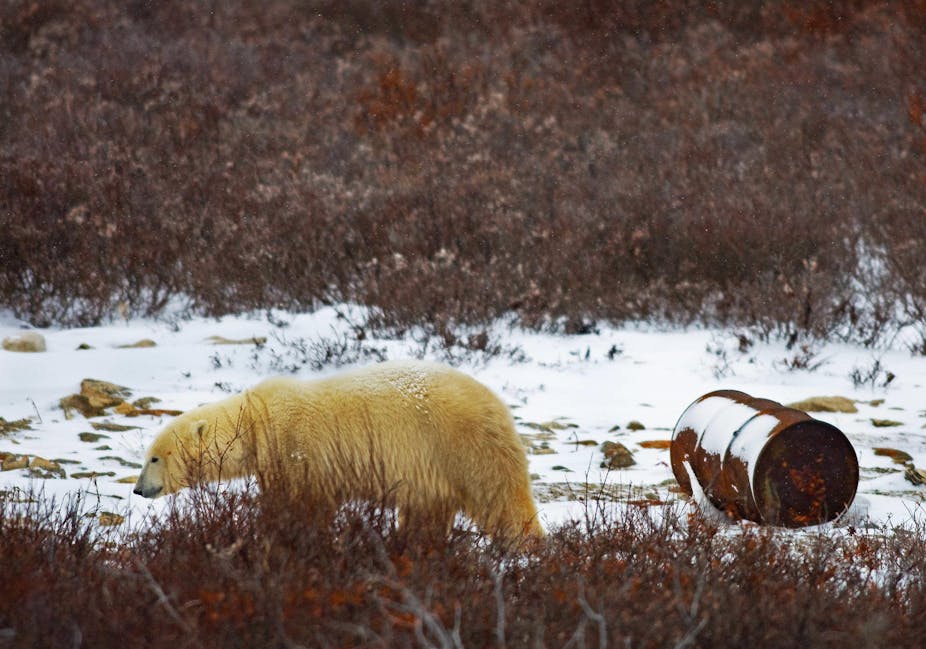Recent Wikileaks cables detailing diplomatic jostling over the Arctic region only confirm how hotly contested it has become.
There are three principal reasons for this tension:
-The dynamic created by rapidly melting ice in the central Arctic Ocean is making the region more accessible to shipping and seabed exploration and exploitation.
-Under the international law of the sea, coastal states have the right to assert maritime claims, including to a continental shelf, which recognise sovereign rights over ocean resources. This capacity to assert ‘new’ sovereign claims was highlighted when Russia planted its flag on the North Pole seafloor in 2007. This has caused Arctic sovereignty tensions not witnessed since the 1930s.
-Unlike Antarctica, which is governed by a Treaty that has successfully diffused sovereignty tensions over that continent, the Arctic has no overarching regional legal framework. It remains subject to sovereignty claims, especially to the continental shelf.

So how can we resolve these issues?
Fortunately, there are mechanisms under 1982 UN Convention on the Law of the Sea to resolve continental shelf claims.
This law reinforced the right of coastal states to assert a continental shelf and recognised the minimum outer limit of a shelf as 200 nautical miles.
But in a concession to coastal states with broad continental shelves, Article 76 of the Law of the Sea permits the extension of the shelf beyond 200 nautical miles to the outer edge of the continental margin, which in some instances could be as distant as 350 nautical miles.
There is no unilateral right to claim an “outer continental shelf”.
Coastal states must first submit data supporting such a claim to the Commission on the Limits of the Continental Shelf.
The implications of the outer continental shelf regime for the Arctic Ocean are significant.
There are large portions of the Arctic seabed beyond 200 nautical mile continental shelf limits, and all the Arctic littoral states are positioning themselves for claims including Canada, Denmark (on behalf of Greenland), Russia, and Norway.
The position of the United States, however, is uncertain. It is not a party to the Law of the Sea, and its ability to assert a continental shelf claim at present is compromised.
So how can the commission be expected to respond to these Arctic Ocean claims?
To date, the commission has sought to strictly maintain its role as a scientific and technical body, despite the wider implications of its decisions.
It has made clear that it will not become engaged in political or legal disputes.
As such, it has sought to sidestep claims that have been asserted by offshore disputed territories, or that may result in overlapping claims between two or more states.

This has already been an issue in the context of claims in the Southern Ocean.
Both Australia and New Zealand have indicated their desire for the commission to set aside claims both countries may be able to make on offshore Antarctica.
These claims would raise considerable controversy because of a general lack of international recognition and because of their status under the Antarctic Treaty.
But the commission is gradually developing a reputation as a truly independent body making credible recommendations founded on a scientific interpretation of the Law of the Sea.
Its actions have helped depoliticise continental shelf claims.
While the Law of the Sea provides a framework for resolution of continental shelf claims, more effort needs to made to develop a suitable governance framework for the Arctic.
The Arctic Council was developed in the 1990s to provide a forum for discussion of regional issues, but there has been fierce resistance to developing a formal regional legal framework.
Nevertheless, in early May at a ministerial meeting of the Arctic Council in Greenland, agreement was reached on a new legally binding instrument dealing with search and rescue.
This modest initiative highlights that Arctic cooperation is growing, and that small steps are perhaps being taken to developing a more comprehensive governance framework for the region.

